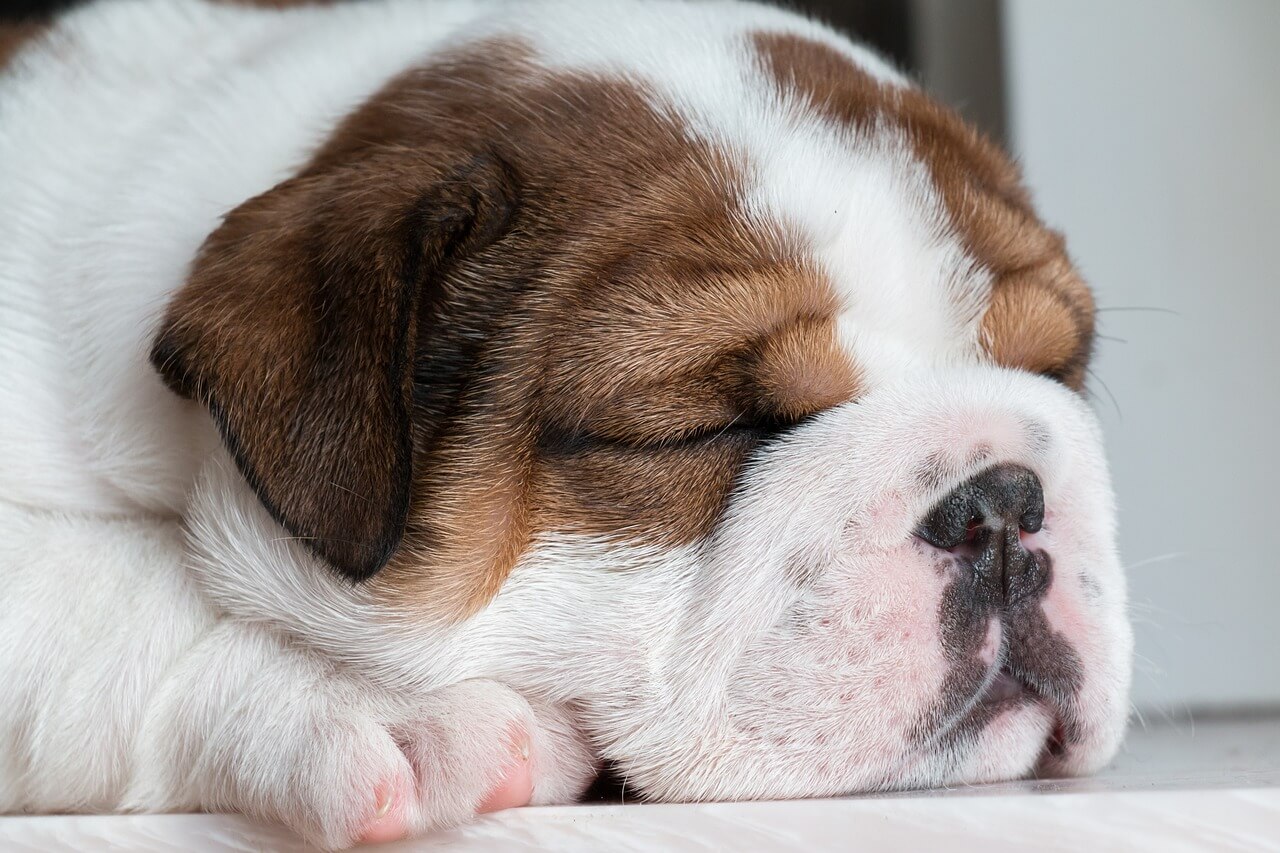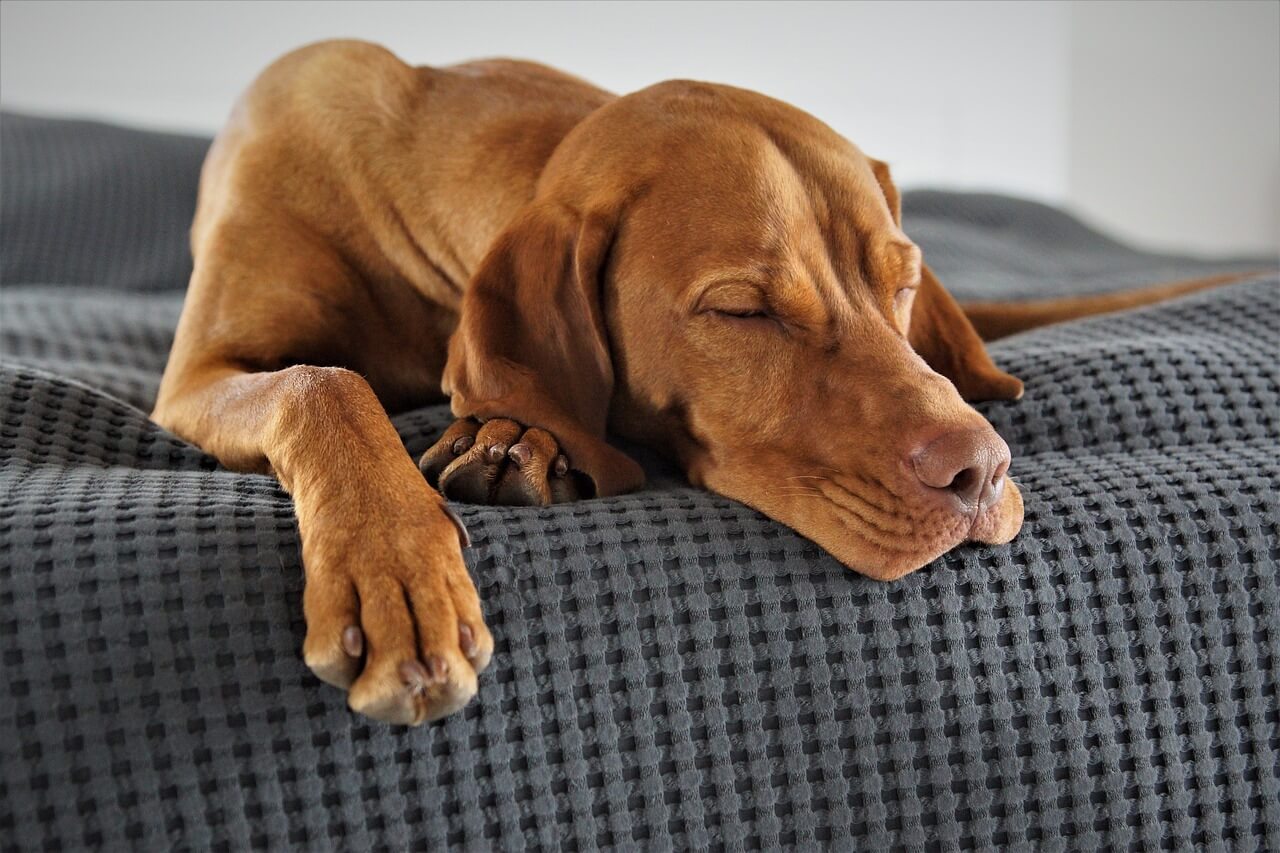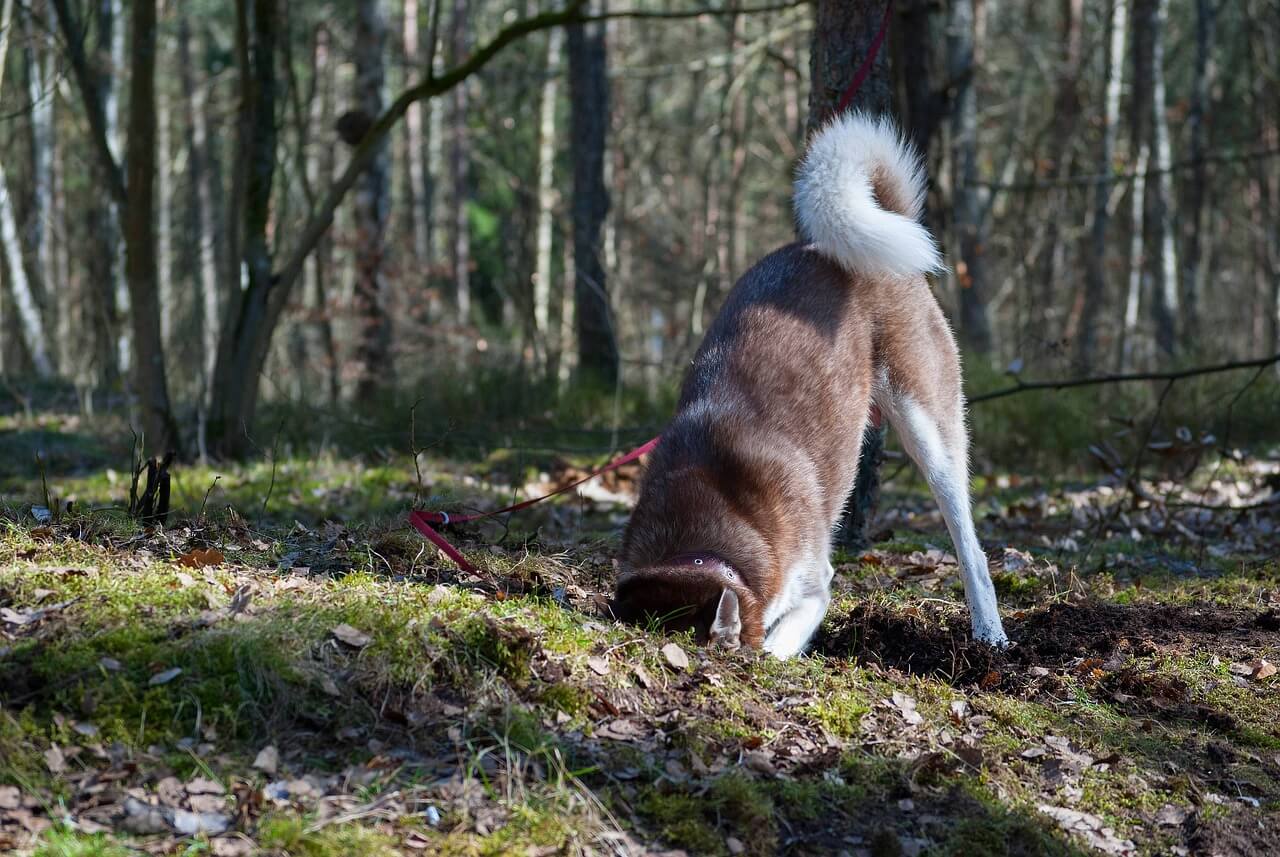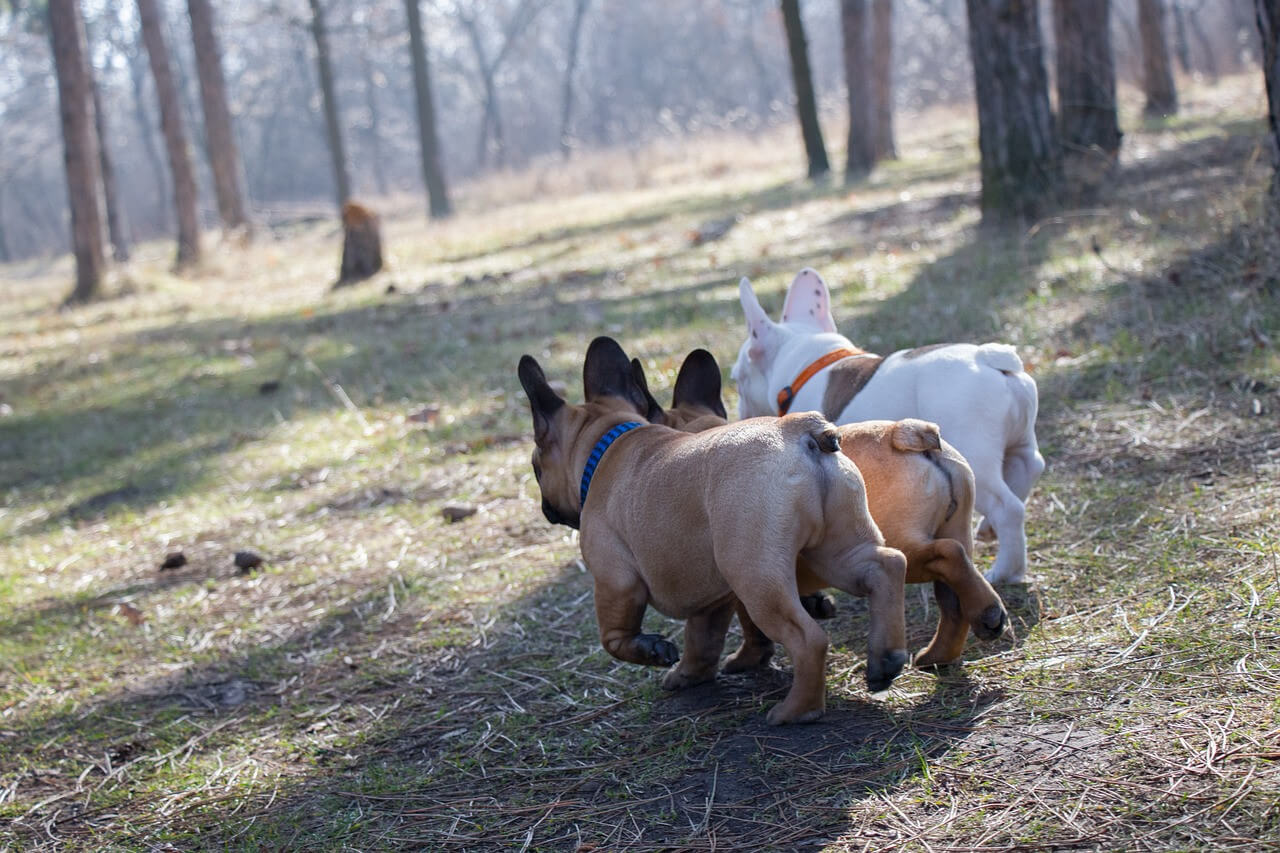Have you ever watched your Labrador Retriever or French Bulldog curled up on their favorite dog bed, twitching softly in the throes of a dream, and wondered, how many hours do dogs sleep? Understanding your dog's sleep habits is crucial to ensuring they get enough rest to stay healthy and happy. From puppies to senior dogs, sleep needs vary based on factors such as breed, age, and health. In this guide, we’ll explore everything you need to know about dog sleep, including how to optimize their sleep schedule and provide a comfortable environment for healthy sleep.
How Many Hours Do Dogs Sleep?
Most adult dogs sleep between 12 to 14 hours a day. However, the number of hours a dog sleeps can depend on their age, activity level, and breed. For example, large breed dogs like Golden Retrievers may need more sleep than small breed dogs. Similarly, more active dogs, such as working dogs like Siberian Huskies or dogs pulling sleds, may spend less time sleeping compared to breeds like the French Bulldog, which are known for their love of lounging.
Puppies Sleep a Lot!
Puppies need a significant amount of sleep to support their rapid growth and development. It’s not uncommon for them to sleep 18 to 20 hours a day. Just like human babies, puppies go through periods of intense growth, both physically and mentally, so if your pup is snoozing for most of the day, rest assured—it’s perfectly normal! Creating a consistent sleep schedule for your puppy can help ensure they get enough sleep time while avoiding disruption to their development.
Senior Dogs and Their Changing Sleep Patterns
Older dogs tend to sleep more than their younger counterparts. As dogs age, their energy levels decrease, and they may require more rest. Senior dogs may sleep for 16 to 18 hours a day, and it's important to monitor for any drastic changes in their sleep patterns. If your senior dog suddenly seems lethargic or starts sleeping excessively, this could be a sign of an underlying health issue, such as arthritis or canine depression, and you should consult your veterinarian.
Understanding Your Dog's Sleep Needs
Every dog owner knows the sight: your once energetic puppy sprawls out without a care, enjoying what seems like one of their countless naps. Or your senior dog dozing off mid-day, seeking the comfort of their calming dog bed. But have you ever paused to ponder, "How many hours should my dog be sleeping?" The answer isn't as straightforward as you might think.
Cama Pita tipo nido para mascotas semicerrada de felpa calmante para perros

€19,95
€27,95
La Cama Nido Pita semicerrada de felpa calmante para perros hace que la hora de la siesta sea más cómoda para perros y gatos. Durable y elegante, esta cama proporciona un lugar cómodo para que tu amigo de la pata… read more
Puppies
New pet parents, brace yourselves: puppies sleep a lot! Those little bundles of joy can clock anywhere from 18 to 20 hours of sleep each day. With a knack for simplifying complex ideas, I'm Lexi Blogpro, your go-to blogger who merges academic rigor with relatable language to create content that's as engaging as it is enlightening. Just like human babies, furry babies need those extra hours to support their rapid physical and mental development. So, don't worry if your Labrador retriever puppy loves snoozing the day away; they're just charging up for their next growth spurt!
Adult Dogs
As dogs mature, their sleep patterns settle. An adult dog typically snoozes for about 12 to 14 hours. However, this can vary based on their health, activity levels, and even breed. For instance, a Siberian Husky with high work requirements might snooze less compared to a laid-back French Bulldog who loves beauty sleep. Keeping a close eye on their rest patterns in tandem with their vigor is crucial. A sudden increase in lethargy or a lack of interest in play should never be dismissed as 'extra sleep'— it's time to consult your vet.
Factors Influencing a Dog's Sleep Habits
A dog’s sleep habits aren’t just influenced by age and breed; other factors, like dog's health, diet, and the environment, also play a big role. A dog suffering from health issues, such as itchy skin or digestive problems, may struggle to get enough sleep, which in turn can negatively impact dog's health. Similarly, a poor diet can lead to discomfort, causing your dog to stay awake more than usual, further affecting their overall well-being.
Some dogs are more sensitive to their environment. A noisy or high-traffic area can disturb your dog’s sleep, leading to sleep deprivation and stress, both of which can be detrimental to your dog's health. On the other hand, providing a quiet and comfortable area with a cozy dog bed can greatly improve their sleep quality and support their overall health.
Incorporating Healthy Sleep Environments
Now that we understand the 'how much' and 'why' behind our dogs' sleep patterns, the question arises: how can we optimize their sleep quality? Just like us, our dogs benefit significantly from a comfortable, peaceful environment that caters to uninterrupted, restful sleep. Whether they're the adventurous type like the Golden Retriever or a homebody like the French Bulldog, every dog deserves a cozy corner to doze off.
Consistency is Key for a Dog's Sleep Schedule
Dogs thrive on routine. Maintaining a consistent sleep schedule and regular routines for walks, meals, and playtime can help keep your dog’s sleep patterns predictable and healthy. For example, a Beagle may benefit from a structured routine to burn off energy before settling down for the night. Disrupting their routine can lead to sleep problems, just like it can for humans. By establishing a set bedtime and ensuring they get enough physical activity during the day, you can help regulate your dog’s natural sleep rhythm.
Night-Time Rituals and Wind-Down Routines
Just like humans, dogs benefit from a relaxing wind-down routine before bed. After dinner, consider engaging in some gentle play or taking a leisurely walk to help your dog unwind. Once you’re ready to settle in for the night, make sure your dog has a comfortable spot with their favorite blanket or soft toy, as this will help signal that it’s time for rest.
Common Sleep Issues in Dogs
If your dog suddenly starts showing common symptoms of sleep disturbances, such as restlessness, excessive sleep, or trouble settling down, it could indicate a deeper problem. Sometimes, dogs suffer from sleep disorders, and changes in behavior like increased irritability or decreased energy could signal issues such as canine depression or other medical problems. If you’re concerned, consult your veterinarian to rule out any serious health concerns.
Another common issue to look out for is snoring. While snoring can be normal in breeds like Bulldogs or Pugs due to their brachycephalic skulls, excessive snoring could indicate respiratory issues or allergies. If you notice a change in your dog’s sleeping positions or snoring patterns, it’s worth discussing with your vet. For dogs with joint issues or older dogs, an orthopedic dog bed can provide the extra support they need for a more restful sleep.
Cama ortopédica cómoda para perros con soporte completo

€29,95
€38,95
La cómoda cama ortopédica para perros con soporte completo garantiza que su pequeño peludo esté rodeado de amor y calidez, brindando comodidad adicional a su amigo de cuatro patas. Protege los huesos: La espuma ortopédica interna 3D de alta densidad alivia… read more
Dogs and REM Sleep
Ever noticed your dog twitch or "run" in their sleep? Dogs experience rapid eye movement (REM) sleep, just like humans. This phase is associated with dreaming and is vital for mental recovery. While in REM, your dog may twitch, growl, or even bark a little. These movements are completely normal and show that your dog is getting the deep sleep they need.
Conclusion
Navigating through the intricacies of your dog's sleep journey, we've uncovered not just the mechanics of their slumber but the tender aspects that lie beneath the surface. From the snooze-inducing large orthopedic dog bed to the calming dog bed that soothes aching joints, and the silent language they speak through their sleep positions, your role doesn't end at providing a cushiony spot in the corner of the living room. It extends into understanding, empathizing, and adjusting to the silent, subtle cues your furry friend emits.
So, as you watch your pup chasing imaginary foes in their sleep, snuggled within the soft embrace of their dog bed, know that every dream they weave in their slumber is a thread added to the bond they share with you. It's a world where you're not just the caregiver but an integral part of their pack, their family. In understanding and nurturing your dog's sleep, you're not just ensuring they're well-rested; you're guaranteeing they feel loved, secure, and understood, in every waking - and sleeping - moment of their lives.








